Through the generosity of University of Iowa alumni C. Maxwell (Max) and Elizabeth (Betty) M. Stanley, the Stanley-University of Iowa Foundation Support Organization (SUIFSO) was created in 1979. Since its inception, SUIFSO has funded projects to promote public understanding and cooperative action on critical international issues all across the UI, including the creation of the Stanley Undergraduate and Graduate Awards for International Research. Stanley Awards for International Research are given annually to outstanding University of Iowa students in all academic fields for the pursuit of foreign research, learning activities in international studies, and career interests abroad.
Meet this year's awardees.
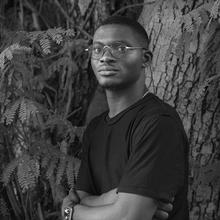
Adedayo Agarau
MFA, creative writing
Research project: Environmental Violence and the Concept of Empire in Lagos: Writing Poems About the Reality of Environmental violence in Lagos, and other Cities in Nigeria
Destination: Nigeria
Home city: Ibadan, Oyo State, Nigeria
“Writing about empire has been in the grand scheme of things; from the biblical accounts of war to the cultural essence of history. But what happens when sacred places are polluted, experiencing environmental violence? Who speaks for these places, these lands our gods and first fathers founded? My project will discuss places in southwestern Nigeria that are currently unable to speak for themselves. As a poet from Nigeria, looking to teach creative writing and African sentences and syntaxes someday, this funding and award will prepare me for what comes next in my academic path; it will prepare me for PhD and other doctoral studies lined up where I consider Ekphrasis as a form of poetry, discussing interests about lands, gods, people, and loss.”
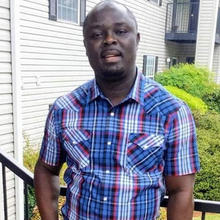
Eric Akuoko
PhD, science education
Research project: Epistemic Tool Use in a ‘Discursive’ Science Classroom for Knowledge Generation: The Role of Argumentation in Inquiry-Based Instruction
Destination: South Africa
Home city: Kumasi, Ghana
“This international research study seeks to examine how teachers incorporate argumentation—the process of using argument structures and processes to support learning—in the African classroom context. The study frames arguments, not as heated emotional event(s), but explores arguments as opportunities to deliberate and negotiate ideas and their meanings during epistemic talk in inquiry-based science classrooms. At the personal level, this research will serve as a precursor-like study to draw on, experientially, for my final PhD dissertation. This Stanley Award for International Research (SAIR) will afford me the space to grow academically and professionally. A planned manuscript and a conference presentation, that would be birthed from this proposed study would be crucial toward my career goal as a researcher. Finally, the SAIR study will financially support me to enable me to contribute to existing scholarship on knowledge generation whiles improving on my general research practice.”
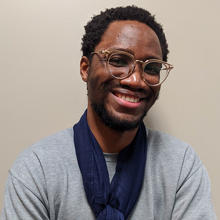
Munachim Amah
PhD, journalism
Research project: Reporting Marginality: News Media Representations of Poverty in Nigeria
Destination: Nigeria
Home city: Lagos, Nigeria
“News media have, for the past few years, reported that Nigeria is the 'poverty capital' of the world because of the number of people living in extreme poverty in the country. As a news researcher, I am interested in these news stories about "poverty" and "poor" people, particularly in who gets to tell what stories and how, and the possibilities that these stories create for socio-economic development or stagnation. Understanding how journalists (especially those who work in non-Western contexts) define their role in society, as well as those contexts that shape their work, is critical to my current research. With the support of a Stanley Award, I am able to travel to Nigeria and spend time with journalists, observing them in their newsrooms and talking with them about their work in reporting poverty. My goal is to collect reasonable data that will inform my dissertation proposal and contribute to the dissertation itself.”
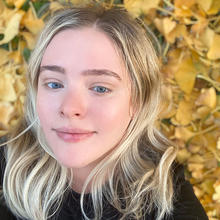
Hilary Bell
MFA, creative writing
Research project: Friulian Dialect and The Madre Lingua in Translation
Destination: Italy
Home city: Nashville, Tennessee
“After the completion of my third semester of coursework at the Iowa Writers’ Workshop, I will travel to Aviano, Italy, to conduct research for my MFA thesis in fiction–a full-length novel–as well as my Graduate Certificate in Literary Translation. My project concerns the complexities of regional dialect, linguistic identity, and the ‘Madre Lingua.’ Through this research, I hope to examine the intersection of fiction and translation in real-time–exploring the ways in which the act of translation becomes both a narrator and a character in the stories we tell. By providing me with protected time to finish my manuscript and translation certificate, the Stanley Award will function as crucial scaffolding and support at a pivotal time in my writing life.”
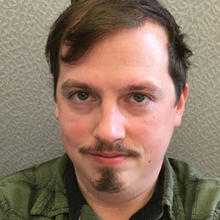
Samuel Boucher
PhD, history
Research project: German Reputation in Latin America
Destination: Berlin, Germany
Home city: Iowa City, Iowa
“For my research in Berlin, in particular, I will add to the growing literature of group reputation and group advantage (i.e., white privilege) by exploring how group reputation is developed and changes over time—in this case, Germans in Latin America. Furthermore, the research would support the emerging sub-field of transnational history by providing explanations of global patterns (migrations, colonization, agricultural development, etc.) and their causes on a worldwide scale using the Mennonites as an interesting case study. Thus, the outcome of this work will contribute to the development of conference papers that I hope to present to the Center for Transnational Mennonite Studies Conference and the Conference at GHI Washington among others. This trip to Berlin is important for my personal development. This pre-dissertation research trip will allow me to become familiar with the workings of archives and libraries, connect with other scholars in my relevant field and beyond, increase my language skills, and give me the tools necessary to write a quality dissertation proposal when I return to the University of Iowa next fall semester.”
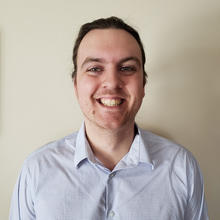
Nathan Chaplin
PhD, history
Research project: The Gateway to the Universe: The Nicaragua Canal and the Midwest
Destination: Nicaragua
Home city: Pella, Iowa
“Throughout the late 19th century, Midwestern scientists studied the Nicaraguan tropics for a multitude of reasons, including bolstering their young universities, advancing their own careers, and assessing the feasibility of a trans-isthmian canal. My research seeks to explore how these Midwesterners shaped both Nicaraguan views of the United States and new articulations of the Midwest itself. This summer, with the support of a Stanley Graduate Award for International Research, I will spend four weeks conducting research at the Archivo General de la Nación de Nicaragua, located in Managua, Nicaragua. This archive contains never digitized correspondences between U.S. and Nicaraguan government officials and will help shed light on the frequently ignored connections between the Midwest and Central America.”
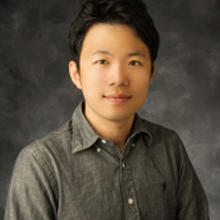
Hyunsik Chun
PhD, sociology & criminology
Research project: The Diffusion of Collective Actions for Memorialization
Destination: South Korea, and Sydney, Australia
Home city: Goyang-si (city), Gyeonggi-do (province), Republic of Korea (South Korea)
“This international project will examine how two contemporary social justice movements–– the Black Lives Matter (BLM) movement in the U.S. and the 'comfort women' movement in South Korea and other global cities such as Sydney, Australia, Berlin, Germany, and San Francisco, United States–– address the cultural legacies of inequalities to generate cultural and policy outcomes. The campaign to remove Confederate statues is part of the BLM movement in the United States that challenges the western history of racism, and the campaign to build statues of 'peace' is part of the transnational feminist 'comfort women' movement that commemorates the sex trafficking victims of the Imperial Japanese Army during the WWII. To understand how social movements produce cultural and policy impacts ––the statue-removing and -building–– across cities and countries, I will examine how local coalitions of the BLM movement and "comfort women" movement contribute to the removal/diffusion of statues. The Stanley International Award will allow me to conduct in-depth interviews with local activist leaders and city council members in Korea and Sydney, Australia. Semi-structured interview questions will be used to discuss five topics: mobilization preconditions, the formation of the local coalition, local protests, how activism interacts with institutions to remove or build a statue, and their decision-making process.”

Eirill Falck
MFA, literary translation
Research project: Researching and Translating Edvard Munch’s Literary Manuscripts
Destination: Norway
Home city: Oslo, Norway
“The Stanley Award for International Research will allow me to spend four weeks in Norway researching and translating the literary manuscripts of Edvard Munch. While Edvard Munch’s paintings rank among the most famous artworks in the world, it is not well-known that Munch also harbored substantial literary ambitions. His personal notebooks contain drafts of stories, novels, poems, aphorisms, and essayistic diary entries. I am working on a book-length collection of translations of Munch’s writings, using translation methods that foreground the link between Munch the artist and Munch the writer. The Stanley Award will allow me to visit Munch’s archives as well as two of his former residences in and near Oslo. These visits, and the research I will be able to conduct at each site, are essential to my project.”
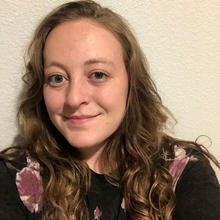
Rebecca Flowers
MFA, nonfiction writing program, English department
Research project: Aboriginal Divers in New South Wales: Alternate Histories of Diving
Destination: Australia
Home city: New York City, New York
“I plan to research the relationship of aboriginal peoples in New South Wales, Australia, to diving, collecting oral histories, and shadowing divers. This work is important to me because I have loved diving since I first dipped my head under the water at 16, and I plan to write my MFA thesis about the history of diving. It is important to me to include perspectives outside of and critical of the more Eurocentric approach to diving. The Stanley Award for International Research allows me to travel to New South Wales and make much deeper connections with these amazing divers than I would have been able to from halfway across the world. I will be able to spend time with them in the water and watch their diving practices in real time.”
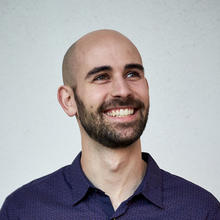
Jake Goldwasser
MFA, creative writing
Research project: Historical Narratives of Environment in the Netherlands
Destination: Netherlands
Home city: Brooklyn, New York
“The goal of my research is to study how the unique environmental conditions of the Netherlands have shaped Dutch society. The history of the Netherlands is deeply intertwined with environmental technology, and it might provide insight into the global climate crisis, which is at the core of my poetry. The Netherlands is partially built on reclaimed land, and almost all of it is susceptible to extreme flooding. The Stanley Award gives me a unique opportunity to see firsthand the technologies (dams, dikes, canals, etc.) that have been devised to mitigate risk, as well as research the social systems that have arisen in the face of an extreme environmental threat.”
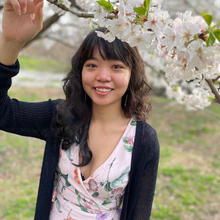
Rosemarie Ho
MFA, creative writing
Research project: British Colonial Suppression of the 1925 Hong Kong General Strike
Destination: United Kingdom
Home city: Hong Kong
“I'm hoping to go through colonial bureaucratic documents about the 1925 general strike in Hong Kong and the Canton area at the National Archives in Kew Gardens, London, to get a better sense of the scope and nature of the strike, and specifically, how the colonial administration scrambled to suppress a grassroots-led cross-border movement. My archival research will enable me to produce a novella about the strike for my degree. The cost of traveling to an expensive city like London is exceedingly high, and thankfully the Stanley Award will help defray the costs of doing so!”
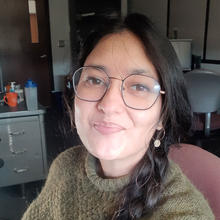
Falak Jalali
PhD, geographical and sustainability sciences
Research project: Impact of Education on the Imagined Future of Agriculture
Destination: India
Home city: Lucknow, Uttar Pradesh, India
“My research investigates the impact of education on the imagined future of agriculture. It particularly examines rural youth and their derived value and aspirations for agriculture. Rural educated youth are considered the custodians of agricultural futures and it is important to understand their orientation about farming and its future. India is a land of diverse ecology and economies. There is conflicting literature on youths' aspirations and orientation towards farming. Some scholars say the educated youth will move out of agriculture, and others say the educated youth will stay in agriculture to move it towards either sustainable or industrial farm practices. The Stanley Award for International Research will help me to understand the reasons which condition the orientation of a young farmer in an ecologically sensitive region of Himachal Pradesh, India. This preliminary research will inform my PhD topic further.”
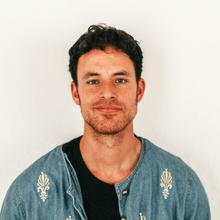
Trevor Kildiszew-Sikorski
MFA, creative writing
Research project: The Soft Outlines: Hannah Höch's Garden & Weimar Judaism
Destination: Germany
Hometown: Victorville, CA
“For my project, I will be researching major Dada artist Hannah Höch's 12,000-piece archive, visiting her home and garden in Berlin, and cataloging plants at major sites of Weimar-era Jewish culture. This project is important to me as a space to explore my Ashkenazi heritage, queer formations and identities, and the transformative aesthetics of recontextualization. I am hoping to take all these streams of influence and incorporate them into an essay of encounter that engages with big questions around identity, violence, privilege, creative practice, and resilience. This project would not be possible without the Stanley Award for International Research. The award I've received will fund major portions of my research and travel expenses abroad.”
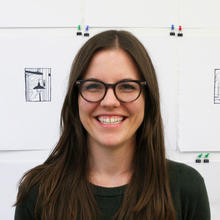
Lauren Krukowski
MFA, printmaking
Research project: Printmaking and Print Collaboration in South Africa
Destination: South Africa
Home city: Waconia, Minnesota, and Brooklyn, New York
“For six weeks this summer, I will participate in a Print Workshop Residency at the David Krut Workshop in Johannesburg, South Africa, and visit print workshops, artist studios, and institutions in Johannesburg and Cape Town. During my residency, I will learn about collaborative printmaking, research intaglio and monotype processes, and hone my technique in these mediums. While in Johannesburg, I will also research the history and contemporary legacy of printmaking and protest in South Africa. My Stanley Award for International Research travel will enhance my understanding of the field of printmaking, collaborative printmaking, and the global community of printmakers working today.”
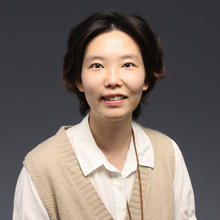
Sora Kim
PhD, education
Research project: Foreignness Explored by Teachers and Learners of Korean Language
Destination: South Korea
Home city: Seoul, South Korea
“I will visit Korea to undertake preliminary research investigating foreignness in Korean as Second Language (KSL) classrooms in Korea. Instructors of Korean language from a variety of settings will be interviewed to reveal how they have become aware of and addressed the foreignness in their classrooms. As I am informed and inspired by critical pedagogy and sociocultural theories, this project would be important for me to hear from educational practitioners about their ongoing, reflective, and open-ended process of transforming foreignness within and beyond classrooms. Getting a Stanley grant will help me not only financially but also in terms of empowerment because the funding source proves that I am trusted as a promising scholar. This qualitative research will also help me to better understand how to conduct research independently while bridging academic theories and educational practices in the field. This beginning of my scholarly journey, supported by Stanley Award, would be a meaningful project to explore ideas for my future dissertation.”
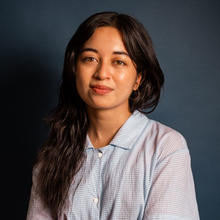
Yasmin Majeed
MFA, creative writing
Research project: Writing the History of the British Asian Youth Movements in Fiction
Destination: United Kingdom
Home city: New York, New York
“I will spend four weeks in the United Kingdom conducting research for my MFA thesis project a novel-in-stories that follows an interconnected group of Pakistani immigrants living in the U.K and the U.S. The novel follows several characters, including one man coming of age during Thatcher-era Britain, where he is involved in youth-led anti-racist organizing. With this research, I plan to explore the relationship between my character’s ethnic and class identities, and in turn, the legacy of British Asian resistance movements, and I will have greater historical accuracy and a richer characterization of the Pakistani immigrant community in my novel. By completing a draft of this section of my novel, I hope to uncover buried histories of resistance that will shape the course of my novel. The Asian Youth Movements marks a pivotal moment of organized resistance and reconceptualization of immigrant identity in the Pakistani diaspora—one whose legacy I am excited to represent in my fiction thanks to the Stanley Award for International Research.”
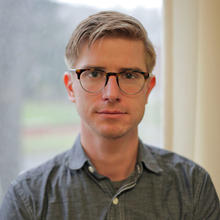
Thomas Mira y Lopez
MFA, literary translation
Research project: Translating Jose J. Veiga's Little Horses of Platiplanto
Destination: Brazil
Home city: New York, New York
“I'll be traveling to the state of Goiás in Brazil to conduct research on the 20th-century Brazilian writer José J. Veiga. Though he's been seldom translated into English, Veiga was one of Brazil's most celebrated novelists during his lifetime, known for his surreal and strange fiction, most of which he set in his home state of Goiás. The Stanley Graduate Award for International Research will allow me to investigate the many ways that Goiás’ cultural and regional particularities influenced Veiga’s fiction. This would facilitate not only my translation of his work, but future scholarship in order to introduce Veiga to English-speaking audiences.”
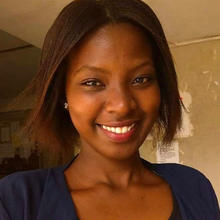
Jasmin Msuya
PhD, anthropology
Research project: Archival collections on Tanzania's Language Policy in Education from 1880s-2000s
Destination: Tanzania
Home city: Dar es Salaam, Tanzania
“I will conduct archival-based research in two Tanzanian cities, Dar es Salaam and Iringa, to identify, collect and analyze the available documents on language use from colonial to post-colonial period, 1880s-2000s. This research is important in tracing the root of the current educational language policy as well as language attitudes surrounding language use in dominant institutions including education/school. The Stanley Award will help me cover the cost including, but not limited to, a return flight ticket from Iowa to Dar es Salaam, meals & accommodation during my stay in Tanzania, transport fare around and across the cities, and photocopies of the documents that I will find from the archives."
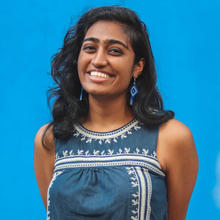
Nitya Rayapati
MFA, creative writing
Research project: To Our Mother Telugu: Linguistic Nationalism in South India
Destination: India
Home city: Austin, Texas
“In India, I'll be researching the 1940s/1950s protests for a separate Telugu-language state. As a writer and translator, I'm fascinated by the history of linguistic nationalism. As a graduate student at the Iowa Writers’ Workshop, I’m working on a short story collection exploring linguistic, cultural, and political identity of members of the Telugu diaspora. My archival research and the time I spend in Hyderabad and Chennai will greatly inform this project.”
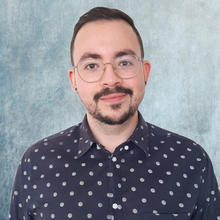
Andres Restrepo-Sanchez
PhD, anthropology
Research project: Obstetric violence and Sex Work in Medellin, Colombia
Destination: Colombia
Home city: Medellin, Colombia
“Obstetric violence is an invisible yet predominant gender-based violence in many countries. Colombia has suffered a particularly violent history that shapes the lives of its population, in which women experience this phenomenon regularly, with a significant incidence in vulnerable groups such as sex workers. This research will use ethnographic theory and methods to understand better how sex workers experience violence within obstetric health to advocate for better practices of humanized care, which is one of my principal goals as a health professional and social sciences scholar. The Stanley Grant will significantly contribute to completing my PhD research by enabling me to assess my dissertation fieldwork methods and strengthen research partnerships in Colombia. It will thus significantly contribute to scholarly knowledge about obstetric violence among vulnerable populations in Colombia and the development of improved policy and clinical practice in this area. In addition, the award will help me access multiple platforms to share the results of this research, which is crucial to informing broader audiences and policymakers about the importance of this phenomenon for the reproductive justice of women and children.”
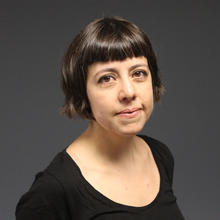
Lara Dopazo Ruibal
MFA, Spanish, creative writing
Research project: Life of a Human Rights Defender
Destination: Mexico
Home city: Marín, Galicia, Spain
“As part of my MFA creative thesis, I am writing a non-fiction book based on the life of a Mexican lawyer, human rights defender, and an indigenous community of the north of Mexico. They have been fighting for their land for decades, and theirs is a story of violence, justice, and resistance. The Stanley Award is key to my project as it will allow me to travel to Mexico. There, I will meet directly with my main sources of information, especially with those who are not reachable at a distance. The fieldwork is essential to completing my non-fiction creative project.”
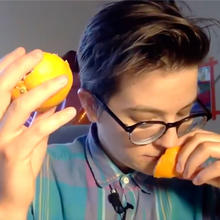
Clay Scofield
MFA, creative writing
Research project: Play and Collective Healing: play in the reunification of Berlin
Destination: Germany
Home city: Dyersburg, Tennessee
“I am traveling to Germany to research the role of play in the ongoing reinvention and healing of Berlin since post-Cold War reunification in 1990. In a pandemic, and eventually, post-pandemic society, play is an essential practice for how we learn to be together, how we heal, and hopefully how we work together towards a more liberated future. This research in Berlin will inform ways we consider play as an intentional social practice as we move into an era of necessary healing from our collective social traumas. The Stanley Award is making it possible for me to travel to immerse myself in a city to explore how play may contribute to the healing and transformation of a community. I am excited to write poems and essays inspired by this experience.”
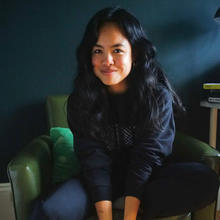
Olivia Tse
MFA, creative writing
Research project: Collaging Ecopoetry After Berlin Dadaists
Destination: Germany
Home city: San Antonio, Texas
“I am using the grant to write poetry about buildings in Berlin that re-imagine our future energy consumption. The city contains a hub of buildings that are carbon neutral or technologically equipped to reduce emissions. I am interested in writing poetry that explores the intimate relationship between built environments and our emotional scaffolding. This research is relevant to my MFA thesis in creative writing which will discuss technology and the environment, asking the reader to consider how we reconcile a growth mindset with its environmental and social consequences.”
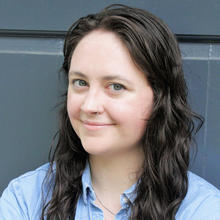
Corinne Watts
PhD, anthropology
Research project: Fibrolite Axe Sourcing, Trade and Use in Prehistoric Central Iberia
Destination:: Spain
Home city: Tallahassee, Florida
“I will spend two months photographing and analyzing a collection of prehistoric fibrolite stone axes in Madrid, Spain. My archaeological research looks to examine how prehistoric human beings utilized environmental resources such as stone as part of daily life. By examining these stone axes, I hope to gain a better understanding of the lives of prehistoric people and their culture in central Spain. The Stanley is an integral part of my research plans as it will allow me to collect the data I need for the initial stage of my dissertation project. My work this summer will allow me to establish patterns in the distribution and use of these artifacts, which will direct the remainder of my PhD research.”
Learn more about the Stanley Awards for International Research and how to apply
All UI undergraduate and graduate students in good academic standing (including non-U.S. citizens) are eligible for a Stanley Undergraduate and Graduate Award for International Research.